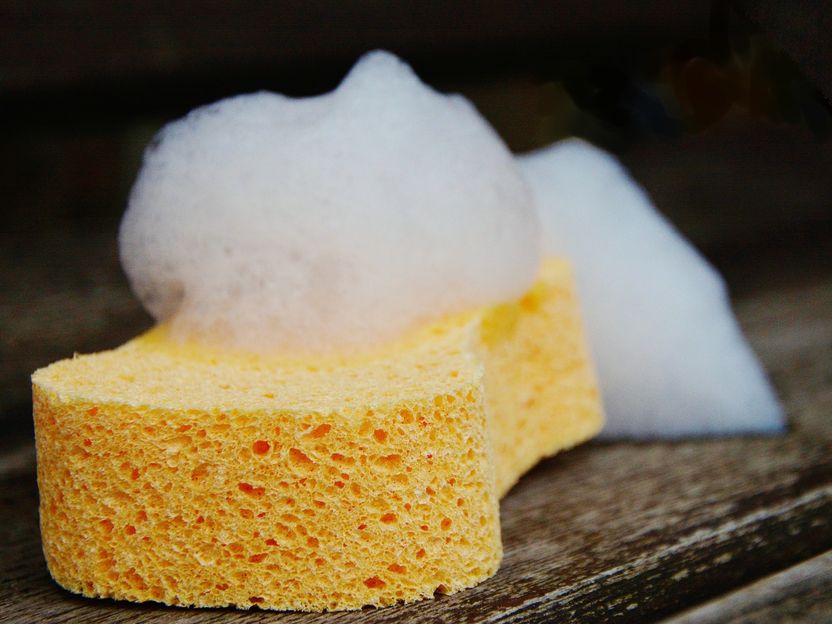Kitchen sponge microbiome: What doesn't kill you, makes you tougher!
Is it a good idea to clean the sponge by heating it in the microwave?
Advertisement
During the corona crisis, household and kitchen hygiene is particularly important as many people are at home more, and are cooking for themselves more often, but at the same time are very conscious of the need to protect themselves from other infectious diseases. Kitchen sponges are real germ spreaders. There are up to 54 billion bacteria in one cubic centimetre of sponge material. Is it a good idea to clean the sponge by heating it in the microwave? It is generally considered to be a good idea to treat a damp sponge like this, but can it be recommended from a scientific point of view?

Symbolic image
congerdesign, pixabay.com, CC0
Well, there's good news and bad news: "Up to 99.99999% of all sponge bacteria will be killed in the microwave oven. However, those which survive will grow again quickly. Whether and how regular microwave treatment affects the composition of the microbial community in a kitchen sponge was, until now, completely unknown. So that's why that was our starting point," explains the man in charge of the study, Prof. Dr. Markus Egert, lecturer in Microbiology and Hygiene at Furtwangen University. Microorganisms are masters at adapting to extreme living conditions. The investigation was based on the scientific background that the typical cleaning and disinfection measures taken in modern households, could, in the long term, promote microbial communities with properties that tend to be harmful to humans.
For the study, 20 new kitchen sponges were distributed to the study participants. Ten randomly selected participants were asked to put the sponge, which had been dampened with washing-up water, into the microwave at the highest level (800 - 1200 Watts) for one minute, two or three times a week. After four weeks of normal use in the kitchen, the sponges were collected and a metagenomic analysis carried out. This involves examining the complete genetic material of a microbial community and contains information, not only about the types of microbes present, but also about their potential metabolic properties.
"We were totally surprised about all the microorganisms we found in the sponges besides bacteria: viruses which attack bacteria; archaea which produce the greenhouse gas methane; fungi; and unicellular animals such as amoeba. But bacteria were by far the most common organisms," explained the head of the study, Prof. Egert.
The composition of the bacterial community of sponges which were regularly treated in the microwave, was significantly different from that of the untreated sponges. The number of species was lower, the diversity of potential metabolic activity, however, tended to be higher. Thus, the treated sponges demonstrated a higher proportion of genes responsible for the synthesis of capsule and cell wall material. "This can be interpreted as a protective mechanism against microwave stress. With time this could lead to the development of microbial communities which are more difficult to remove from the sponge. More genes which are involved in sulphur metabolism could point to a higher tendency to produce bad odours," thinks Egert. "But more studies are needed to prove this." Until now, no differences have been identified in bacterial genes which can be linked to the triggering of human diseases.
So, do you have to worry about using sponges in the kitchen after treating them in the microwave? Sponges are not, and never will be, the ideal cleaning tool for kitchens from a hygiene point of view. It's no problem to use them again after putting them in the microwave a few times, but it is better to replace them regularly (every week or every second week) than to keep "zapping" them. Instead it's better to use them, until the end of their "lives", for household jobs where high standards of hygiene are not so important, such as garden work or cleaning the car.


























































